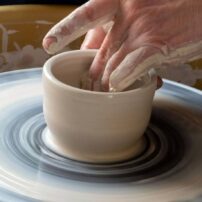 What’s in those delicious holiday cookies? How come it’s hard to breathe while decking the halls? Is that adorable puppy in the big red bow causing you to have a big red nose?
What’s in those delicious holiday cookies? How come it’s hard to breathe while decking the halls? Is that adorable puppy in the big red bow causing you to have a big red nose?
“The holiday season is full of fun festivities and beloved traditions, many of which present unique challenges to people with allergies or asthma,” explains Dr. Mark Corbett, president of the American College of Allergy, Asthma and Immunology (ACAAI). “Fortunately, with a thoughtful mindset and proactive approach, you can enjoy a season full of merriment and good cheer.”
Corbett and the experts at ACAAI share tips for managing asthma and allergy triggers throughout the winter holidays:
Don’t let ‘achoos. interrupt celebrations
Indoor allergens are often invisible. When rotating holiday decor in your home, make sure to wipe down items to remove triggers like dust and mold. Additionally, whether you’re decorating for Thanksgiving, Hanukkah or Christmas, opt for allergy- and asthma-friendly decorations to set the holiday mood. Try battery-operated, flameless candles rather than traditional candles, which produce smoke and can cause an asthma flare.
While you can take steps to limit allergy and asthma triggers in your own home, you have less control when traveling. Whether it’s an afternoon celebration or weeklong escape, plan ahead by bringing everything you need, including allergy medicine and asthma inhalers. Some people opt to travel with their own allergy-proof pillow or pillow case and other personal items to ensure comfort if staying overnight.
Plan a paws-itively fun holiday
Whether it’s cozy snuggles, playing games or capturing a special picture, pets can help make holidays bright. However, when pets are around, dander is a concern. Even if pets spend much of their time outdoors, they may be inside more as temperatures drop, and this means increased dander throughout your home.
To help with pet allergies, try to keep your pets only in certain rooms rather than giving them access to the whole home. It can be especially effective to keep them out of bedrooms to facilitate better sleep.
If you’re staying at someone else’s home with a pet, close the door to the room where you’re sleeping. You should also be mindful of limiting how much you pet your cat or dog, and when you do, wash your hands immediately afterward.
Food allergies don’t bring good cheer
If you or a loved one has a food allergy, it’s important to remain vigilant in asking about ingredients before trying foods. Never assume that just because you cook something without certain ingredients, other people will do the same.
People with severe allergies might be sensitive to even trace amounts of certain foods, so it’s important to ask. When in doubt, pass on a treat with unknown ingredients. And always carry two epinephrine auto injectors in case of an emergency.
When visiting someone’s home for a gathering, make sure they are aware of your allergy so they can plan accordingly. To ease the ask, offer to bring a dish to share that you know is safe to eat. That way if options are limited, you know there is something you can enjoy. And remember, if you’re hosting an event in your home, extend kindness by asking if any of your guests have allergies so you can prepare a thoughtful menu.
It’s the most sniffle-filled time of the year
In addition to the ongoing pandemic, the holiday season aligns with respiratory illness season. If you have asthma, it’s particularly important to wash your hands regularly. The best way to eliminate germs is to wash your hands with soap and water for at least 20 seconds. That’s about the time it takes to sing the chorus of Jingle Bells twice.
If you haven’t already, get a COVID vaccination and your annual flu vaccination. It’s OK to get them at the same time, according to the Centers for Disease Control and Prevention. If you’ve been invited to other people’s homes, you may want to ask in advance if they are vaccinated against COVID. Some people choose to wear masks indoors and at private gatherings, so continue to do this if it makes you more comfortable.






















